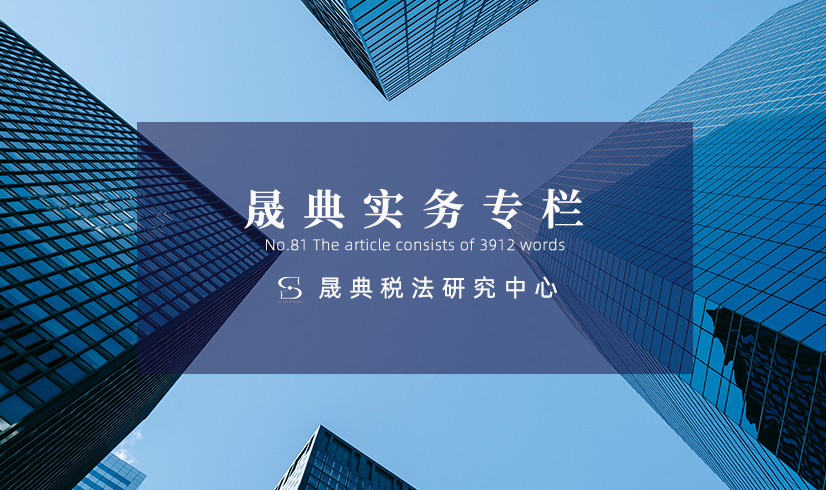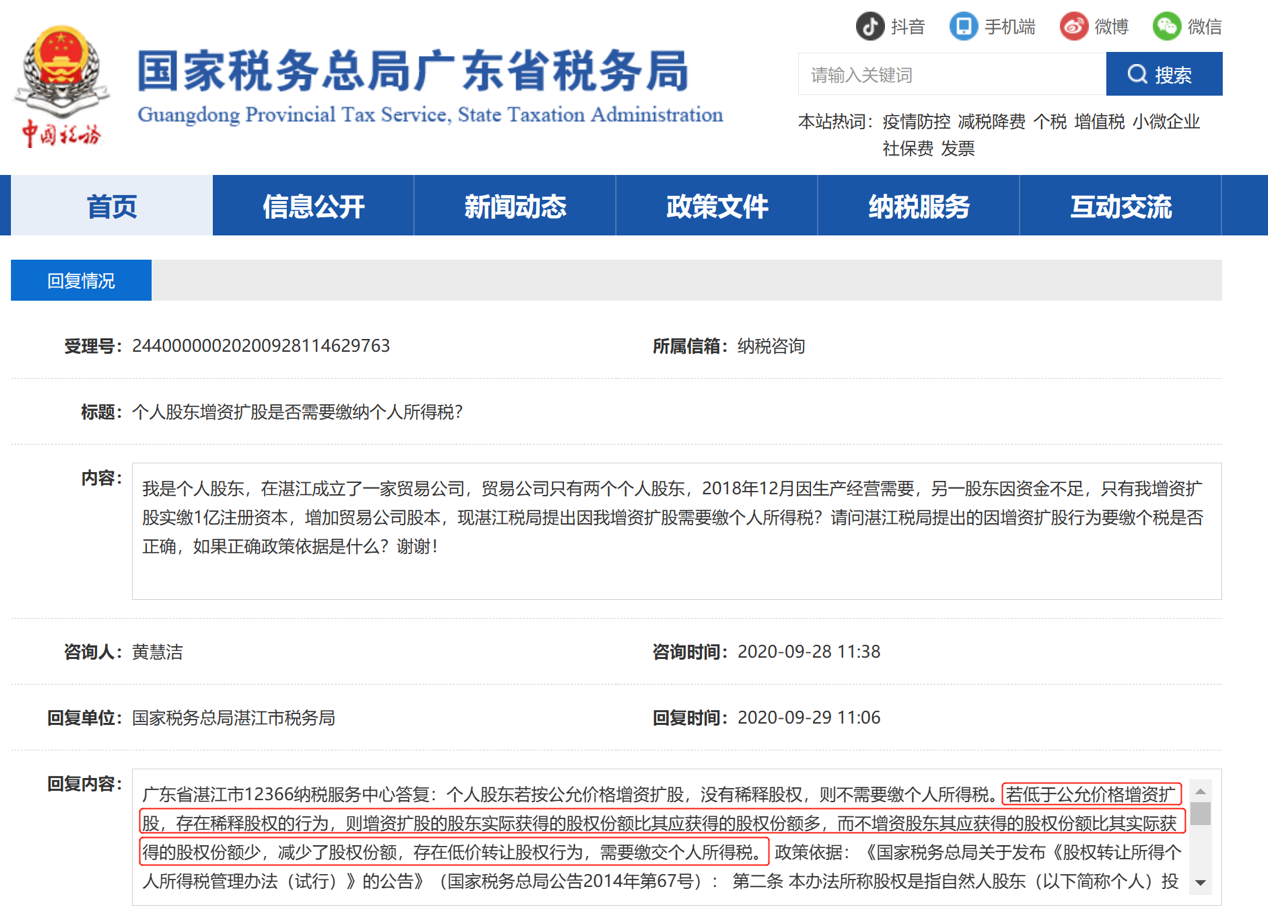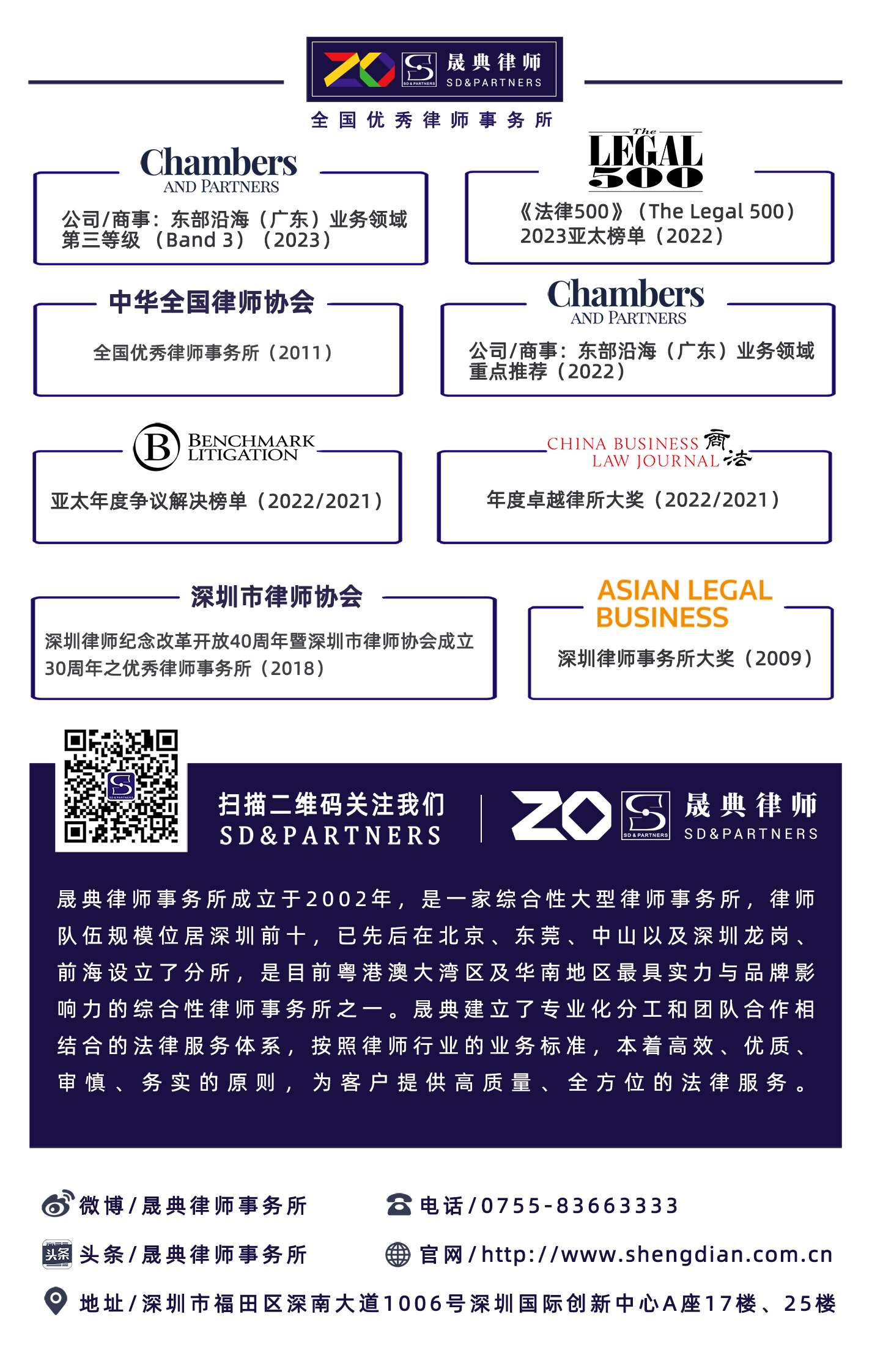Discussion on whether individual shareholders need to pay personal income tax on capital increase and share expansion --- to reply to the consultation of Guangdong Zhanjiang Tax Bureau.
 Loading...
Loading...
 2023.02.09
2023.02.09

Introduction:There has been much discussion in practice about whether individual shareholders are required to pay personal income tax on capital increases. Due to the lack of clear legal provisions at present, the views of all parties are quite different. There is a view that shareholders should not pay personal tax, on the grounds that there is no equity transfer in the process of capital increase, and there is no consideration payment; another view is that if the capital increase shareholder is less than the fair value of net assets per share, the part of the fair value of the company's net assets actually owned by the original shareholder should be regarded as a transfer and individual tax should be paid in accordance with the law. There is also a view that if individual tax needs to be paid, should be paid by the shareholders of the capital increase, etc. This paper attempts to find problems from the consultation reply of the Guangdong Zhanjiang Taxation Bureau and explore the relevant tax issues related to capital increase and share expansion.
1. Contents of Consultation Reply of Guangdong Zhanjiang Taxation Bureau

Acceptance number:24400000020200928114629763
Mailbox:Tax Consultation
Title:Do individual shareholders need to pay personal income tax for capital increase?
Consultation time:2020-09-28 11:38
Content:I am an individual shareholder. I set up a trading company in Zhanjiang. The trading company has only two individual shareholders. In December 2018, due to the needs of production and operation, the other shareholder paid in 0.1 billion registered capital due to insufficient funds. The share capital of the trading company, now Zhanjiang Tax Bureau proposes to pay personal income tax for my capital increase and share expansion? May I ask whether Zhanjiang Tax Bureau's proposal to pay a tax due to capital increase and share expansion is correct, and if so, what is the basis for the correct policy? Thank you!
Reply Unit:tate Administration of Taxation Zhanjiang Taxation Bureau
Response time:2020-09-29 11:06
Reply content:The 12366 Tax Service Center of Zhanjiang City, Guangdong Province replied: If individual shareholders increase their capital at a fair price and do not dilute their equity, they do not need to pay personal income tax. If the capital increase and share expansion is lower than the fair price and there is a dilution of equity, the actual equity share of the shareholders who increase and expand shares is more than the equity share they should obtain, while the equity share of the shareholders who do not increase capital is less than the actual equity share they should obtain, reducing the equity share, and there is a low-cost transfer of equity, which requires the payment of personal income tax.
Announcement of the State Administration of Taxation on Issuing the Measures for the Administration of Individual Income Tax on Income from Equity Transfer (for Trial Implementation) (Announcement No. 67 [2014] of the State Administration of Taxation):
Article 2 The equity referred to in these Measures refers to the equity or shares invested by natural person shareholders (hereinafter referred to as individuals) in enterprises or organizations established within the territory of China (hereinafter collectively referred to as invested enterprises, excluding sole proprietorships and partnerships).
Article 4 When an individual transfers equity, the balance of the equity transfer income minus the original value of the equity and reasonable expenses shall be the taxable income, and the individual income tax shall be paid according to the "property transfer income.
Article 10 The income from equity transfer shall be determined in accordance with the principle of fair trade.
Article 11 If one of the following circumstances is met, the competent tax authority may approve the equity transfer income: the equity transfer income declared by the (I) is obviously low and there is no justifiable reason; Article 12 If one of the following circumstances is met, it shall be deemed that the equity transfer income is obviously low: the equity transfer income declared by the (I) is lower than the share of net assets corresponding to the equity. Among them, if the invested enterprise owns land use rights, houses, unsold real estate of real estate enterprises, intellectual property rights, prospecting rights, mining rights, equity and other assets, the declared equity transfer income is lower than the fair value share of net assets corresponding to the equity; (II) the declared equity transfer income is lower than the initial investment cost or lower than the price paid for the acquisition of the equity and related taxes and fees; the equity transfer income declared by the (III) is lower than that of the same shareholder or other shareholders of the same enterprise under the same or similar conditions; the equity transfer income declared by the (IV) is lower than that of enterprises in the same industry under the same or similar conditions; the (V) unreasonable free transfer of equity or shares; (VI) other circumstances determined by the competent tax authorities.
Article 13 The income from equity transfer that meets one of the following conditions is obviously low and is deemed to be justified: (1) It can issue valid documents to prove that the production and operation of the invested enterprise has been significantly affected due to the adjustment of national policies, resulting in the transfer of equity at a low price; the (II) inherits or transfers the equity to a spouse, parent, child, grandparent, grandparent, grandchild, sibling, and a dependant or supporter who has the obligation of direct support or support to the transferor who can provide legal proof of the relationship; (III) the provisions of relevant laws, government documents or articles of association of the enterprise, and there is relevant information to fully prove that the transfer price is reasonable and true for the internal transfer of shares held by the employees of the enterprise that cannot be transferred externally; (IV) other reasonable circumstances where both parties to the equity transfer can provide valid evidence to prove its reasonableness.
The above reply is for reference only, thank you for your support to this website!
There are three questions in the reply of Zhanjiang Taxation Bureau. Only by clarifying these three questions can we accurately judge whether the capital increase and share expansion involves the payment of individual tax.First, whether there is a dilution of equity due to a discounted capital increase; second, whether the dilution of equity can be recognized as a transfer of equity; and third, whether there is taxable income from the shareholders of the capital increase.
(I) Is there equity dilution due to underpriced capital increases?
The above-mentioned consultation reply is that: the capital increase of the shareholders at a discount to the original shareholders led to the dilution of the proportion of shares of the original shareholders, so it is regarded as the original shareholders and the capital shareholders in the transfer of shares at a low price, should pay a tax. This view is both a departure from the facts and a logical contradiction. The departure from the fact is that the reply completely ignores a basic fact: if the original shareholders do not participate in the capital increase, other parties will dilute the proportion of the original shareholders' equity. Examples are as follows:
Two natural person shareholders A and B respectively contributed to 500000 the establishment of G Co., Ltd., each holding 50% of the shares. After 1 year, due to operational difficulties, financing is required. At this point, the fair value of Company G's net assets per share is $2.
Situation 1:A and B agreed that A would increase the capital 1 million and A would receive 500000 shares of stock.
Analysis: A is to increase the capital at a price equal to the fair value of net assets per share. Then 500000 of the capital increase 1 million A is included in paid-in capital and 500000 in capital surplus, and Company G's accounting treatment is as follows:
Borrowing: Bank deposit 100
Credit: Paid-in capital-A 50
From the above, it can be found that A's equity ratio rises to (50+50)/(100+50)= 66.7, B's equity ratio falls to 1-66.7=33.3, so B's equity is diluted.
Situation 2:A and B agreed that A would increase the capital 1 million and A would receive 1 million shares of stock.
Analysis: A is to increase the capital at a price less than the fair value per share. Then A's capital increase is 1 million fully credited to paid-in capital, and Company G's accounting treatment is as follows:
Borrowing: Bank deposit 100
Credit: Paid-in capital-A 100
From the above, it can be found that the equity ratio of A rises to (50+100)/(100+100)= 75%, thus the equity ratio of B falls to 1-75% = 25%, so the equity of B is diluted.
Situation 3:A and B agreed that A would increase the capital 1 million and A would receive 100000 shares of stock.
Analysis: A is to increase the capital at a price greater than the fair value per share. The 100000 in the 1 million of A capital increase is included in paid-in capital and 900000 in capital surplus. Company G's accounting treatment is as follows:
Borrowing: Bank deposit 100
Credit: Paid-in capital-A 10
From the above, it can be found that A's equity ratio rises to (50+10)/(100+10)= 54.5, thus B's equity ratio falls to 1-54.5=45.5, thus B's equity is diluted.
It can be seen that the advisory reply that "individual shareholders do not need to pay personal income tax if they increase their capital at a fair price and do not dilute their shares" is a departure from the facts.
The logical contradiction in the advisory reply is: the original shareholders need to pay a tax on the transfer of shares at a low price, but the transfer of shares at a premium (above fair value) does not need to pay a tax?
(II) Can equity dilution be recognized as an equity transfer?
First of all, there is no basis in fact or logic for the consultation response to identify the dilution of equity ratio as equity transfer. The so-called transfer is the subject matter unchanged and its right holder changes ownership. The equity acquired by the capital increase is the equity issued (registered) by the investee company to the new shareholders, not the equity of the original shareholders, and the equity of the original shareholders and their corresponding capital contributions have not been transferred. The decrease in the shareholding ratio of the original shareholders is due to the decrease in the proportion of their capital contribution in the total share capital of the investee company, rather than the transfer.
Secondly, regulations and policies such as the Tax Administration Law, the Individual Income Tax Law and the Announcement of the State Administration of Taxation on Issuing the Measures for the Administration of Individual Income Tax on Income from Equity Transfer (for Trial Implementation) (hereinafter referred to as the "Announcement") have clarified the transfer of property Definition and boundaries. In particular, Article 3 of the announcement stipulates that "the transfer of equity referred to in these Measures refers to the transfer of equity by individuals to other individuals or legal persons, including the following situations: (1) selling equity; (II) companies repurchase equity; (III) issuers for the first time When issuing new shares, the shareholders of the invested enterprise sell their shares to investors together in the form of public offering; (IV) equity is forcibly transferred by judicial or administrative authorities; (V) foreign investment or other non-monetary transactions with equity; (VI) to offset debt with equity; (VII) other equity transfers." The decline in equity caused by the capital increase does not belong to the first six specific circumstances, the seventh is the bottom clause, non-special circumstances can not be expanded to explain, and as mentioned above, the change of shareholding ratio, shareholding ratio transfer and equity transfer is not the same thing.
Obviously, the capital increase will result in a change in the shareholding ratio, but it is not a transfer of equity, and there is no taxable act of equity transfer.
(III) Does the capital increase shareholder have taxable income?
If there is no equity transfer as described above, there is no income from the equity transfer and the original shareholder has no tax liability. However, there will also be questions as to whether the difference should be treated as taxable income if the shareholders of the capital increase receive equity from the investee company below fair value. In this regard, the author believes that:
First, if the act of capital increase is not to be regarded as the transfer of property, the capital increase shareholders transfer money, get equity, the value of the transferred property (currency) by the transferor (capital increase shareholders) is measured at face value, there is no possibility of being transferred at low price, parity, premium. If you invest at a discount, it is regarded as buying an item at a preferential price at most, just like buying a discounted product, do consumers need to pay a tax?
Second, the value of the currency, the price is its face value, there is no tax base problem and the tax base of the currency and its transfer price (value) deviation from the problem, the currency investment to form equity, the face value of the currency (capital increase price) can become the basis of the tax cost of the transfer of the equity after the transfer. Moreover, the new equity has just created an initial cost issue and there was no prior possibility of fair value.
Thirdly, some people may question: why is it necessary to calculate and pay individual income tax according to the tax policy for capital contribution of non-monetary assets? firstly, investing equity with non-monetary assets (also belonging to non-monetary assets) actually belongs to the exchange of non-monetary assets. In my opinion, according to the principle of quantitative taxation and substantive taxation, it is not uncontroversial to require taxation and payment of taxes at fair value before the assets exchanged are realized, and to treat book floating earnings as income for taxation (not expanded here). Secondly, if non-monetary assets are exchanged for equity, the non-monetary assets have the problem of the original tax basis, and the equity has the problem of determining its tax basis when it is realized in the future. Therefore, it is necessary to take the equity value as the transfer price of the non-monetary assets invested, pay taxes in the investment of non-monetary assets, and settle its original tax basis, the taxable value of the non-monetary asset is passed on to the taxable cost basis of the invested equity. Otherwise, the tax cost basis of non-monetary assets is measured in the investor, while future equity realizations occur in the investee enterprise, and tax administration becomes more difficult in the event of an omission of tax information between the investor and his or her tax bureau and the investee enterprise and its tax bureau. Therefore, the author believes that the essence of income tax in the non-monetary asset swap link is to pass on the tax basis and take the tax in advance, which solves the efficiency of tax collection, but at the expense of tax justice and legitimate value.
In my opinion, a capital increase in currency, whether or not at the fair value of the equity (in fact, with reference to the fair value of the old equity), should not have the issue of tax collection for the original shareholders and the shareholders of the capital increase.
The author logged into the 12366 tax service platform for inquiries and found that the responses of tax authorities in various places in the past two years were relatively vague. Basically, the law was extracted for the consultant to make his own judgment. Therefore, there may be different law enforcement standards across the country. It is suggested that the parties involved in capital increase and share expansion should conduct sufficient consultation and research before operation to legally safeguard the rights of taxpayers, so as not to increase unnecessary tax risks and costs.
Introduction to the Author
Senior partner of Shengdian law firm, director of tax law research center, foreign lawyer of Hong Kong kewushen law firm, arbitrator of Shenzhen International Arbitration Court (South China International Economic and Trade Arbitration Commission), member of financial and tax law professional committee of all China Lawyers Association, deputy director of tax law committee of Guangdong Lawyers Association, and industry leader of China Association of certified tax agents (phase I of high-end talents). Wang Yongjing, a lawyer with a master's degree in accounting and a doctor of law from Wuhan University, is a compound expert lawyer with working experience in banking, corporate finance, project management, law firms, and fiscal and taxation consulting agencies. He is good at combining "law + professional (industry)" experience to solve major and difficult legal problems for clients, at present, the main practice areas are non-litigation affairs and related dispute resolution in the fields of company, finance, real estate and construction engineering, tax law and taxation.
Sheng Dian law firm practice lawyer, China tax agent. He has served in a large foreign financial leasing company and served as the legal department of the company's headquarters. At present, the main practice areas are corporate mergers and acquisitions, tax law and taxation, capital markets and other non-litigation affairs and related dispute resolution.

![]() Loading...
Loading...![]() 2023.02.09
2023.02.09





